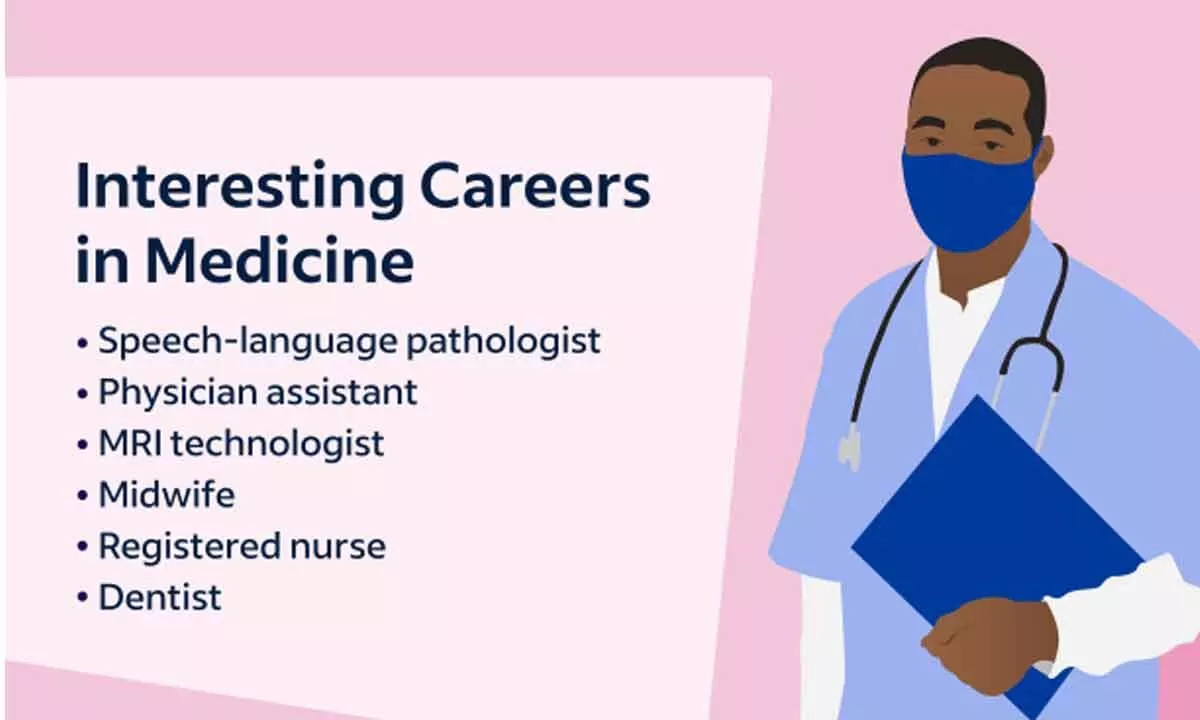Check out the Career in healthcare professionals

Healthcare is a vast and diverse field that offers a wide range of career opportunities for professionals with various interests, skills, and educational backgrounds.
Healthcare is a vast and diverse field that offers a wide range of career opportunities for professionals with various interests, skills, and educational backgrounds. Here are some of the key career fields in healthcare:
Medicine: Physicians, also known as doctors, diagnose and treat illnesses, injuries, and medical conditions. They may specialize in various areas such as internal medicine, pediatrics, surgery, obstetrics and gynecology, psychiatry, or dermatology. Physicians typically require extensive education and training, including medical school, residency, and possibly fellowship programs.
Nursing: Nurses provide patient care, administer medications, and assist with medical procedures under the supervision of physicians and other healthcare professionals. There are several paths to becoming a nurse, including earning a Bachelor of Science in Nursing (BSN), Associate Degree in Nursing (ADN), or diploma from an accredited nursing program. Nurses can specialize in areas such as pediatric nursing, critical care nursing, oncology nursing, or psychiatric nursing.
Allied Health Professions: Allied health professionals work in various specialized roles to support patient care and treatment. This category includes professions such as:
Physical Therapy: Physical therapists help patients improve mobility, manage pain, and recover from injuries or surgeries through exercises, manual therapy, and other interventions.
Occupational Therapy: Occupational therapists help patients develop or regain skills needed for daily living and work activities following illness, injury, or disability.
Speech-Language Pathology: Speech-language pathologists assess and treat communication and swallowing disorders in patients of all ages.
Radiologic Technology: Radiologic technologists perform diagnostic imaging procedures such as X-rays, computed tomography (CT) scans, and magnetic resonance imaging (MRI) scans to help diagnose medical conditions.
Medical Laboratory Science: Medical laboratory scientists perform laboratory tests on patient samples to help diagnose diseases and monitor treatment effectiveness.
Respiratory Therapy: Respiratory therapists assess and treat patients with breathing disorders such as asthma, chronic obstructive pulmonary disease (COPD), or respiratory failure.
Pharmacy: Pharmacists dispense medications, provide medication counseling to patients, and collaborate with healthcare providers to ensure safe and effective medication use.
Healthcare Administration: Healthcare administrators, also known as healthcare managers or healthcare executives, oversee the operations of healthcare facilities such as hospitals, clinics, nursing homes, or medical practices. They may be responsible for managing budgets, staffing, regulatory compliance, quality improvement initiatives, and strategic planning.
Public Health: Public health professionals work to promote and protect the health of communities through education, policy development, disease prevention, and health promotion initiatives. This field encompasses roles such as epidemiologists, health educators, environmental health specialists, biostatisticians, and public health researchers.
Health Information Management: Health information management professionals are responsible for managing and protecting patient health information, including medical records, billing data, and electronic health records (EHRs). They ensure the accuracy, confidentiality, and accessibility of health information for patient care, research, and billing purposes.

















